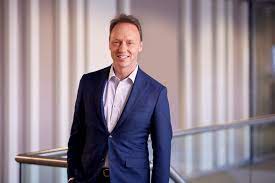Unilever: New boss promises step-change after ‘flat volumes’ in half-year results

Unilever made a modest profit in the first half of the year with turnover reaching €30.4bn (£26.2bn), driven by sales in its personal care and beauty market – with its share price up 4.78 per cent.
The Ben & Jerry’s to Vaseline maker said that operating profit reached €5.5bn (£4.74bn) during the term, up 22.6 per cent compared to last year.
New Unilever CEO Hein Schumacher, who took the reins after his predecessor Alan Jope left in June , said “Unilever’s performance in the first half highlights the qualities that attracted me to the business.”
Previous management has faced shareholder irritation due to an underperforming share price and a perceived lack of dynamism.
“My early immersion in the business has confirmed my belief in Unilever’s strong fundamentals. The task ahead is to leverage these core strengths – supported by our simplified operating model – to drive improved performance and competitiveness,” the Dutchman Schumacher said.
The consumer goods giant said that volumes were “virtually” flat across the business, with a step- up in performance in beauty and wellbeing and personal care which helped volume declines elsewhere.
Personal care brands, which include Dove soap and deodorant, accounted for 23 per cent of group turnover, making €6.9bn (£5.95bn) during the first half of the year.
Beauty and wellbeing brands such as Vaseline and its more upmarket brands such as Dermalogica accounted for 20 per cent of turnover racking in €6.2bn (£5.34bn).
Unilever said it expects 2023 underlying sales growth to be above five per cent , but with only a slight improvement in operating margins due to continued cost pressures which are impacting consumer spending.
With customers continuing to scale back due to the tough economic market, the company said store bought ice cream sales volumes only grew slightly and underlying operating margin declined 100bps.
In its European market, including the UK, prices remained high for customers as inflation continued to impact the cost of items in its nutrition arm.
“These results from Unilever are solid but uninspiring,” Charlie Huggins, manager of the Quality Shares Portfolio at Wealth Club, said.
“Despite significant price increases, Unilever has managed to maintain broadly flat volumes. This is a clear positive and suggests Unilever’s brands continue to attract a loyal following. The other piece of good news is Unilever upping its full year sales guidance to “above 5 per cent” and reiterating that operating margins will improve slightly, despite cost pressures.”